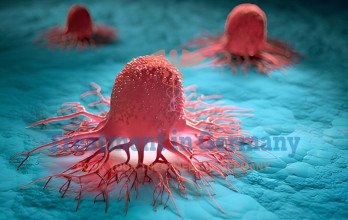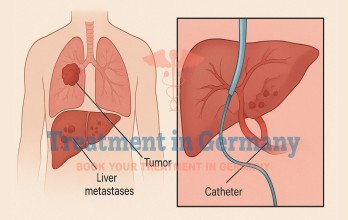
Advanced stage 4 cervical cancer treatments in Germany include targeted embolization and dendritic cell therapy, offering effective, personalized care for patients.
Details →
Facing a stage 4 liver cancer diagnosis can feel daunting, but Germany offers hope through innovative treatment options tailored for advanced cancer patients.
Details →
A stage 4 colorectal cancer diagnosis can weigh heavily, but Germany offers hope with innovative treatments designed to fight this advanced disease.
Details →
A stage 4 lung cancer diagnosis can feel overwhelming, but Germany offers hope with innovative treatments that tackle this serious disease with precision
Details →
Prostate cancer can feel daunting, but Germany offers a powerful solution with Lutetium-177 PSMA Therapy, a targeted treatment for metastatic castration-resistant prostate cancer (mCRPC).
Details →
Esophageal cancer in advanced cancer stages often spreads to nearby lymph nodes or organs like the liver, making it tough to treat with surgery or standard chemotherapy.
Details →
Pelvic cancer, including cancers of the bladder, prostate, or cervix, often spreads to nearby tissues or organs in advanced cancer stages, making it tough to treat with surgery or standard chemotherapy.
Details →
Prostate cancer in advanced cancer stages often spreads to bones or lymph nodes, making it tough to treat with surgery or standard chemotherapy.
Details →
Germany offers a powerful solution with dendritic cell therapy in Germany, a treatment that boosts your immune system to fight cancer cells.
Details →
Melanoma, an aggressive skin cancer, often spreads to organs like the lungs or liver in advanced stages, making it tough to treat with surgery or standard chemotherapy.
Details →
Esophageal cancer, particularly in advanced stages, often spreads to organs like the liver or lungs, creating significant challenges due to its aggressive nature.
Details →
Stage 4 neuroendocrine tumors with liver metastases spread to the liver, creating significant challenges due to their complex and aggressive nature.
Details →
Germany leads in cancer care with TACE treatment in Germany, a minimally invasive procedure that delivers chemotherapy directly to liver tumors
Details →
Germany leads in cancer care with TACE treatment in Germany, a procedure that delivers chemotherapy directly to liver tumors with minimal invasion.
Details →
Stage 4 pancreatic cancer spreads to distant organs like the liver or lungs. This aggressive disease resists standard treatments such as surgery or systemic chemotherapy.
Details →
Stage 4 ovarian cancer with liver metastases spreads to the liver, creating significant challenges due to its aggressive nature. This advanced disease resists standard treatments like surgery or systemic chemotherapy.
Details →
Stage 4 lung cancer with liver metastases spreads to the liver, complicating treatment due to its aggressive nature. This advanced disease resists standard treatments like surgery or systemic chemotherapy.
Details →
International patients access these seamlessly through support of TIG including coordination and complete logistic arrangements, ensuring a compassionate journey.
Details →
German healthcare centers lead the way, offering advanced therapies that target tumors while preserving quality of life
Details →
.webp)
 (1).webp)

.webp)
 (1).webp)


.webp)
 (1).webp)

.webp)
 (1).webp)
